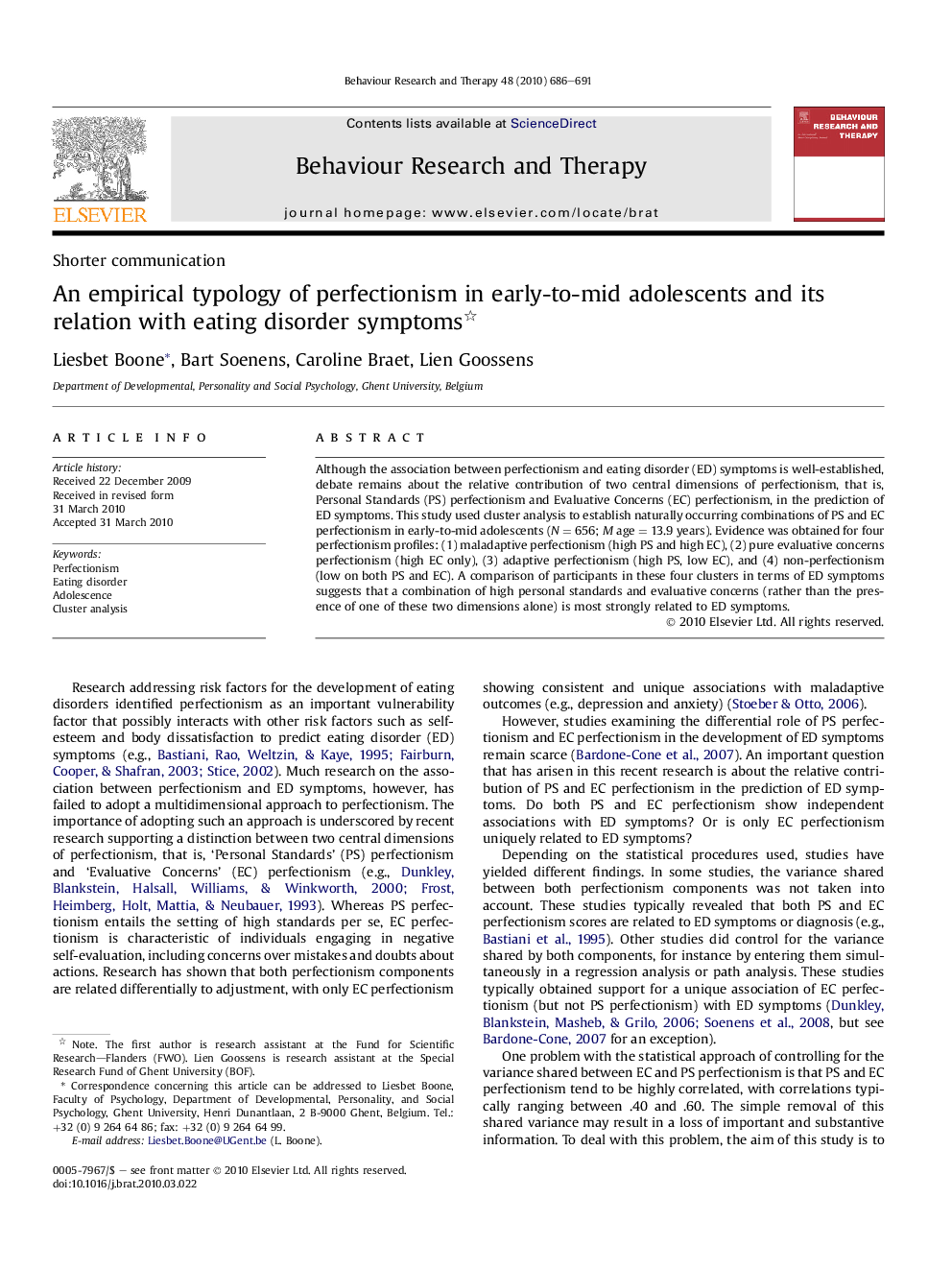| Article ID | Journal | Published Year | Pages | File Type |
|---|---|---|---|---|
| 902087 | Behaviour Research and Therapy | 2010 | 6 Pages |
Although the association between perfectionism and eating disorder (ED) symptoms is well-established, debate remains about the relative contribution of two central dimensions of perfectionism, that is, Personal Standards (PS) perfectionism and Evaluative Concerns (EC) perfectionism, in the prediction of ED symptoms. This study used cluster analysis to establish naturally occurring combinations of PS and EC perfectionism in early-to-mid adolescents (N = 656; M age = 13.9 years). Evidence was obtained for four perfectionism profiles: (1) maladaptive perfectionism (high PS and high EC), (2) pure evaluative concerns perfectionism (high EC only), (3) adaptive perfectionism (high PS, low EC), and (4) non-perfectionism (low on both PS and EC). A comparison of participants in these four clusters in terms of ED symptoms suggests that a combination of high personal standards and evaluative concerns (rather than the presence of one of these two dimensions alone) is most strongly related to ED symptoms.
